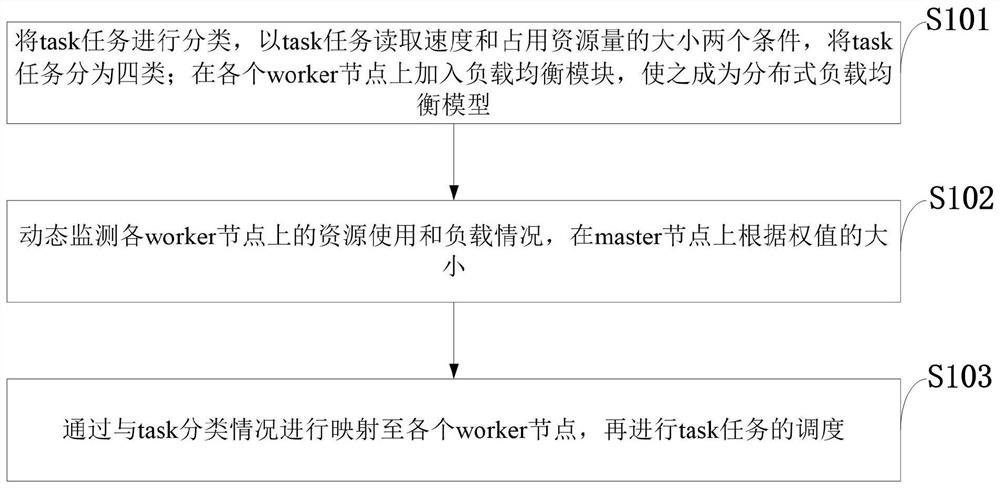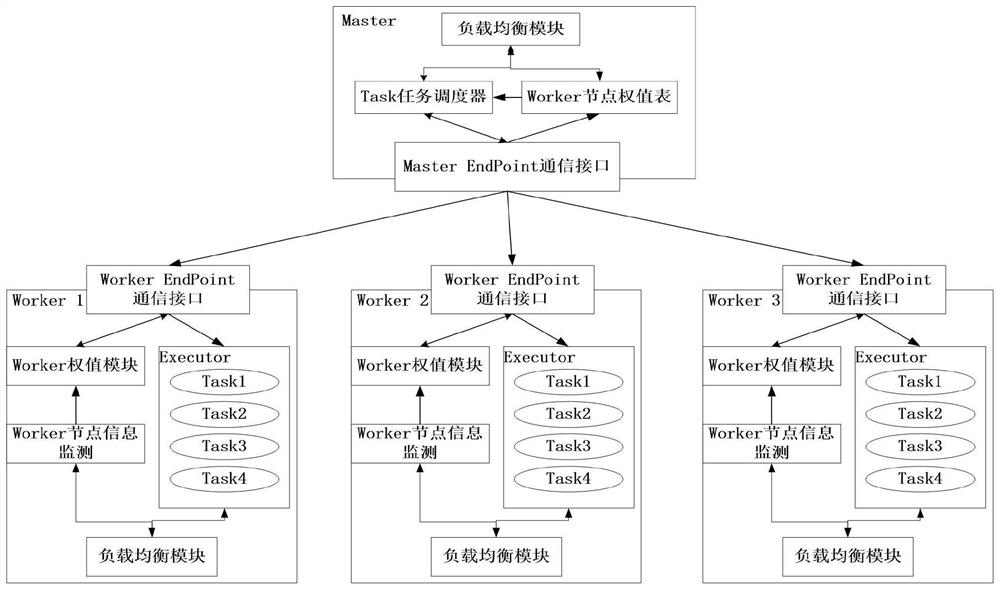Weight priority task task scheduling method based on load balancing mechanism
A technology of load balancing and task scheduling, applied in the direction of program control design, multi-program device, instrument, etc., can solve problems such as unconsidered, high task load of worker nodes, task congestion, etc., to improve resource utilization and solve The effect of high load on weak nodes and saving task running time
- Summary
- Abstract
- Description
- Claims
- Application Information
AI Technical Summary
Problems solved by technology
Method used
Image
Examples
Embodiment Construction
[0037] In order to make the object, technical solution and advantages of the present invention more clear, the present invention will be further described in detail below in conjunction with the examples. It should be understood that the specific embodiments described here are only used to explain the present invention, not to limit the present invention.
[0038] Such as figure 1 As shown, the weight priority Task task scheduling method based on the load balancing mechanism provided by the embodiment of the present invention includes the following steps:
[0039] S101: Classify the task tasks, and divide the task tasks into four categories based on the two conditions of the task task reading speed and the size of the occupied resources; add a load balancing module to each worker node to make it a distributed load balancing model ;
[0040] S102: Dynamically monitor the resource usage and load situation on each worker node, according to the size of the weight on the master ...
PUM
 Login to View More
Login to View More Abstract
Description
Claims
Application Information
 Login to View More
Login to View More - R&D
- Intellectual Property
- Life Sciences
- Materials
- Tech Scout
- Unparalleled Data Quality
- Higher Quality Content
- 60% Fewer Hallucinations
Browse by: Latest US Patents, China's latest patents, Technical Efficacy Thesaurus, Application Domain, Technology Topic, Popular Technical Reports.
© 2025 PatSnap. All rights reserved.Legal|Privacy policy|Modern Slavery Act Transparency Statement|Sitemap|About US| Contact US: help@patsnap.com



